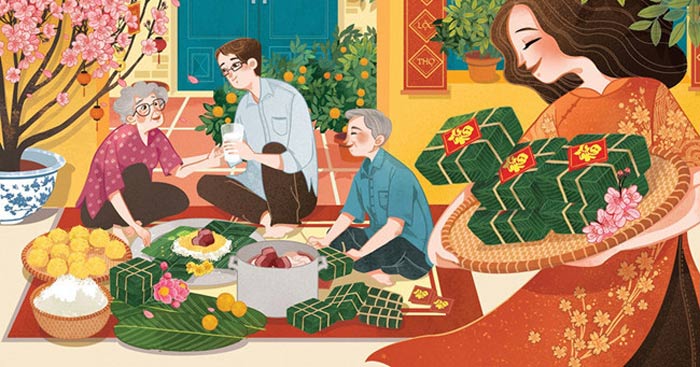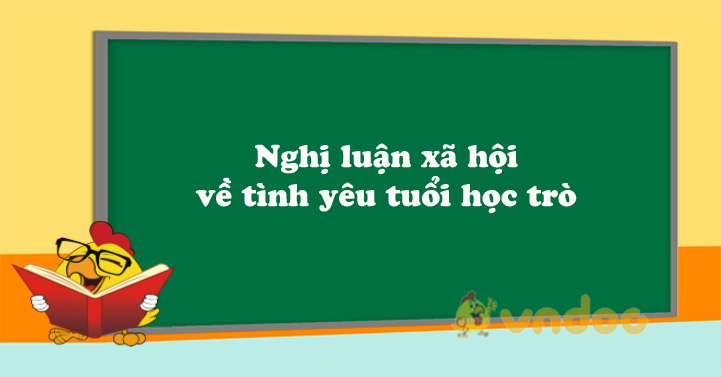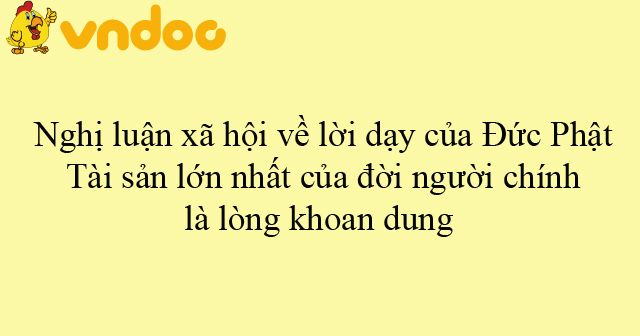|
ĐỀ SỐ 9 ««««« |
ĐỀ THI THỬ THPT QG NĂM HỌC 2020 Môn: Tiếng anh Thời gian làm bài: 60 phút, không kể thời gian phát đề |
Mark the letter A, B, C, or D on your answer sheet to indicate the word whose underlined part differs from the other three in pronunciation in each of the following questions.
Question 1. A. challenge B. achievement C. chance D. scholarship
Question 2. A. question B. presentation C. industrialization D. modernization
Mark the letter A, B, C, or D on your answer sheet to indicate the word that differs from the other three in the position of primary stress in each of the following questions.
Question 3. A. instrument B. recipe C. commitment D. candidate
Question 4. A. hurricane B. photograph C. recommend D. separate
Mark the letter A, B, C, or D on your answer sheet to indicate the correct answer to each of the following questions.
Question 5. The atmosphere at the meeting was very ___________ and everyone was on the first
name terms.
A. formal B. informal C. formality D. informality
Question 6. The more demanding the job is, ___________ I like it.
A. more B. most C. the more D. the most
Question 7. After a long working day, she felt ___________ .
A. broken down B. worn out C. knocked out D. turned down
Question 8. Does television adequately reflect the ethnic and cultural ___________ of the country.
A. custom B. diversity C. alternation D. minority
Question 9. Had I studied harder, I ___________ better in the last exam.
A. would do B. would have done C. had done D. wouldn’t have done
Question 10. Tim was disappointed because he ___________ for the train for two hours.
A. was waiting B. waited
C. has been waiting D. had been waiting
Question 11. It was only ___________ he told me his surname that I realized that we had been to the same school.
A. then B. until C. as soon as D. when
Question 12. ___________ Paul realize that he was on the wrong flight.
A. No sooner had the plane taken off than B. It was not until the plane had taken off that
C. Only after the plane had taken off D. Not until the plane had taken off did
Question 13. Tim told Daisy that he ____________ the film three times.
A. had seen B. saw C. have seen D. sees
Question 14. The children have every reason to be proud ____________ their efforts.
A. at B. to C. in D. of
Question 15. These ____________ boys often play tricks on their friends.
A. mischievous B. obedient C. honest D. well-behaved
Question 16. All ____________ we had been told turned out to be untrue.
A. that B. which C. what D. where
Question 17. We need ____________ information before we can decide.
A. further B. farther C. far D. furthest
Question 18. Let’s go camping, ____________ ?
A. don’t we B. shall we C. will you D. won’t you
Mark the letter A, B, C, or D on your answer sheet to indicate the word(s) CLOSEST in meaning to the underlined word(s) in each of the following questions.
Question 19. You must answer the police’s questions truthfully: otherwise, you will get into trouble.
A. as trustingly as you can B. with a negative attitude
C. in a harmful way D. exactly as things really happen
Question 20. Tom is the black sheep of the family, so he is never welcomed there.
A. a beloved member B. a bad and embarrassing member
C. the only child D. the eldest child
Mark the letter A, B, C, or D on your answer sheet to indicate the word(s) OPPOSITE in meaning to the underlined word(s) in each of the following questions.
Question 21. To his dismay, his name was not on the list.
A. disappointment B. depression C. happiness D. pessimism
Question 22. I think you will be home and dry in the interview because you have many years of teaching experience and good academic qualifications.
A. be successful B. be unsuccessful
C. be satisfied D. be unsatisfied
Mark the letter A, B, C, or D on your answer sheet to indicate the option that best completes each of the following exchanges.
Question 23. Two friends Diana and Anne are talking about their upcoming exams.
- Diana: “Our midterm exams will start next Tuesday, are you ready?”
- Anne: “____________”.
A. I’m half ready. B. God save you.
C. Thank you so much D. Don’t mention it!
Question 24. - Mai: “____________”.
- Nam: “Goodluck!”
A. I don’t like rock music. B. How do you do!
C. Have a nice day! D. I’m taking an English test this afternoon.
Read the following passage and mark the letter A, B, C, or D on your answer sheet to indicate the correct word or phrase that best fits each of the numbered blanks from 25 to 29.
One of the most important inventions in the development of science and medicine was the microscope. It was (25) ___________ the principle that light could be “refracted” or bent, by a glass lens. It was soon discovered that tiny objects could be magnified (26) ___________ size when viewed through a glass lens that had been ground and polished in a specific (27) ___________ .
Although the principle was known to the Chinese as early as 1000 A.D, it was not until the 13th and 14th centuries in Europe (28) ___________ it was put to practical use in the form of eyeglasses. In Europe the first microscope was invented by brothers Zacharias and Hans Janssen, two Dutch eyeglass-makers, around 1590. They built a “compound” microscope, so called because of its two lenses. The most significant development and use of the microscope during this period, however, belongs to another Dutch optician, Antonie van Leeuwenhoek. Bom in Delft, Holland, he became skilled at (29) ___________ very sharp and accurate magnifying lenses.
Question 25. A. based upon B. based by C. based in D. based at
Question 26. A. by B. on C. in D. with
Question 27. A. procedure B. manner C. fashion D. character
Question 28. A. when B. than C. then D. that
Question 29. A. granting B. grinding C. scraping D. rubbing
Read the following passage and mark the letter A, B, C, or D on your answer sheet to indicate the correct answer to each of the questions from 30 to 34.
Because the low latitudes of the Earth, the areas near the equator, receive more heat than the latitudes near the poles, and because the nature of heat is to expand and move, heat is transported from the tropics to the middle and high latitudes. Some of this heat is moved by winds and some by ocean currents, and some gets stored in the atmosphere in the form of latent heat. The term “latent heat” refers to the energy that has to be used to convert liquid water to water vapor. We know that if we warm a pan of water on a stove, it will evaporate, or turn into vapor, faster than if it is allowed to sit at room temperature. We also know that if we hang wet clothes outside in the summertime, they will dry faster than in winter, when the temperature is lower. The energy used in both cases to change liquid water to water vapor is supplied by heat - supplied by the stove in the first case and by the Sun in the latter case. This energy is not lost. It is stored as vapor in the atmosphere as latent heat. Eventually, the water stored as vapor in the atmosphere will condense to liquid again, and the energy will be released to the atmosphere.
In the atmosphere, a large portion of the Sun’s incoming energy is used to evaporate water, primarily in the tropical oceans. Scientists have tried to quantify this proportion of the Sun’s energy. By analyzing temperature, water vapor, and wind data around the globe, they have estimated the quantity to be about 90 watts per square meter, or nearly 30 percent of the Sun’s energy. Once this latent heat is stored within the atmosphere, it can be transported, primarily to higher latitudes, by prevailing, large - scale winds. Or it can be transported vertically to higher levels in the atmosphere, where it forms clouds and subsequent storms, which then release the energy back to the atmosphere.
Question 30. The passage mentions that the tropics differ from the Earth’s polar regions in which of the following ways?
A. The height of cloud formation in the atmosphere.
B. The amount of heat they receive from the Sun.
C. The strength of their large scale winds.
D. The strength of their oceanic currents.
Question 31. Why does the author mention “the stove” in the passage?
A. To describe the heat of the Sun. B. To illustrate how water vapor is stored.
C. To show how energy is stored. D. To give an example of a heat source
Question 32. According to the passage, most ocean water evaporation occurs especially _________.
A. around the higher latitudes B. in the tropics
C. because of large - scale winds D. because of strong ocean currents
Question 33. According to the passage, 30 percent of the Sun’s incoming energy_________.
A. square meter B. the Sun’s energy C. latent heat D. the atmosphere
Question 34. The underlined word “it” refers to_________ .
A. square meter B. the Sun’s energy C. latent heat D. the atmosphere
Read the following passage and mark the letter A, B, C, or D on your answer sheet to indicate the correct answer to each of the questions from 35 to 42.
lara Barton became known as “ The Angel of the Battlefield” during the American Civil War. Bom in Oxford, Massachusetts in 1821, Clara Barton’s interest in helping soldiers on the battlefield began when she was told army stories from her father. Another event that influenced her decision to help soldiers was an accident her brother had. His injuries were cared for by Barton for 2 year. At the time, she was only 11 years old. Barton began teaching school at the age of 15. She taught for 18 years before she moved to Washington, D.C in 1854.
The civil war broke out 6 years later. Immediately, Barton started war service by helping the soldiers with their needs. At the battle of Bull Run, Clara Barton received permission from the government to take care of the sick and hurt. Barton did this with great empathy and kindness. She acknowledged each soldier as a person . Her endurance and courage on the battlefield were admired by many. When the war ended in 1865, she used 4 years of her life to assist the government in searching for soldiers who were missing during the war.
The search for missing soldiers and years of hard work made her feeble physically. In 1869, her doctors recommended a trip to Europe for a rest. While she was on vacation, she became involved with the International Red Cross, an organization set up by the Geneva Convention in 1864. Clara Barton realized that the Red Cross would be a best help to the United States. After she returned to the United States, she worked very hard to create an American Red Cross. She talked to government leaders and let American people know about the Red Cross. In 1881, the National Society of the Red Cross was finally established with its headquarters in Washington, D.C. Clara Barton managed its activities for 23 years.
Barton never let her age stop her from helping people. At the age of 79, she helped food victims in Galveston, Texas. Barton finally resigned from the Red Cross in 1904. She was 92 years old and had truly earned her title “ The Angel of the Battle”.
Question 35. According to the paragraph 1, which of the following is true of the young Clara Barton?
A. She helped her father when he was a soldier.
B. She suffered from an accident when she was 11.
C. She helped her brother who hurt in an accident.
D. She made a decision to live with her brother for 2 years.
Question 36. The phrase “broke out” in paragraph 2 is closest in meaning to ___________.
A. extended B. broken down C. closed D. began
Question 37. The word “this” in paragraph 2 refers to ___________.
A. recognized each soldier as a person B. cooker for soldiers
C. took care of the sick and hurt D. received permission
Question 38. The word “acknowledged” in paragraph 2 could best be replaced by ___________.
A. nursed B. recognized C. pleaded D. believed
Question 39. What can be inferred about the government?
A. It did not always agree with Clara barton .
B. It did not have the money to help Clara Barton.
C. It taught Clara Barton great empathy and kindness.
D. It had respect for Clara Barton.
Question 40. What does the author mention about the American Red Cross?
A. It was disapproved again and again by the Geneva Convention .
B. Barton tried to have it set up in America.
C. The American people were not interested in the Red Cross.
D. It was first established in the Unites States.
Question 41. What is the main idea of the passage?
A. Clara Barton helped wounded soldiers and she was the founder of the Red Cross.
B. Clara Barton was a kind and strong woman who helped people in need.
C. Clara Barton becam a nurse during the American Civil War.
D. Clara Barton worked for disaster victims until she was old.
Question 42. What can be the best title of the reading passage?
A. The angel of the Battlefield B. The American Red Cross
C. The American Civil War D. The International Red Cross
Mark the letter A, B, C, or D on your answer sheet to indicate the underlined part that needs correction in each of the following questions.
Question 43. (A) The longer the children (B) waited in (C) the long queue, the more (D) impatiently they became.
Question 44. While verbalization is (A) the most common form of language in (B) existence, humans make use of many (C) others systems and techniques (D) to express their thoughts and feelings.
Question 45. United Nations is aimed at (A) develop friendly relations among nations (B) based on respect for the (C) principle of equal rights and (D) self-determination of peoples.
Mark the letter A, B, C, or D on your answer sheet to indicate the sentence that is closest in meaning to each of the following questions.
Question 46. French is the only language other than English spoken on five continents.
A. French and English are the only languages that are spoken on five continents.
B. Unlike French, English is spoken on five continents.
C. French and English are spoken widely in official and commercial circles.
D. Before English, French was the only language spoken on five continents.
Question 47. The last time I saw David was when I ran into him at the station on my way to New York.
A. I haven’t seen David since a chance meeting with him at the station when I was setting off for New York.
B. When I last went to New York, I happened to meet David at the station.
C. When I last saw David at the station in New York, I ran after him.
D. I finally saw David at the station when I was on my way to New York.
Question 48. California attracted people from many countries when gold was discovered in 1848.
A. Discovered in 1848, gold was attractive to people in California.
B. Discovered in California in 1848, gold attracted people from many countries there.
C. Gold in California was discovered in 1848 after many people came here.
D. When people are attracted to California, they discovered gold in 1848.
Mark the letter A, B, C, or D on your answer sheet to indicate the sentence that best combines each pair of sentences in the following questions.
Question 49. The weather was very hot. The children continued playing football in the schoolyard.
A. Because of the weather was hot, the children continued playing football in the schoolyard.
B. Because the hot weather, the children continued playing football in the schoolyard.
C. In spite of the hot weather, the children continued playing football in the schoolyard.
D. Despite the weather was hot, the children continued playing football in the schoolyard.
Question 50. Mr. David is a professor. His car was stolen yesterday.
A. Mr. David, who his car was stolen yesterday, is a professor.
B. Mr. David, whose car was stolen yesterday, is a professor.
C. Mr. David’s car was stolen yesterday, that he is a professor.
D. Mr. David, who is a professor, his car was stolen yesterday.
Đáp án
|
1-D |
2-A |
3-C |
4-C |
5-B |
6-C |
7-B |
8-B |
9-B |
10-D |
|
11-D |
12-D |
13-A |
14-D |
15-A |
16-A |
17-A |
18-B |
19-D |
20-B |
|
21-C |
22-B |
23-A |
24-D |
25-A |
26-C |
27-B |
28-D |
29-B |
30-B |
|
31-D |
32-B |
33-D |
34-C |
35-C |
36-D |
37-C |
38-B |
39-D |
40-B |
|
41-B |
42-A |
43-D |
44-C |
45-A |
46-A |
47-A |
48-B |
49-C |
50-B |


.jpg)
.jpg)

